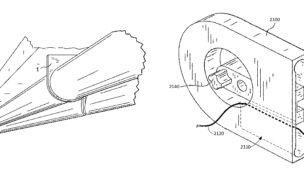Lawsuit accuses biotech company of discrimination
Staff //May 30, 2019//
Seven black women have filed a discrimination lawsuit against their employer, Charles River Laboratories, accusing the company of allowing racial comments in the workplace and of engaging in the practice of promoting less-experienced white employees over longtime black employees.
The plaintiffs’ case accuses the company of tolerating systemic discrimination against black workers for years and failing to take corrective action on repeated reports of discrimination.
Charles River Laboratories, based in Massachusetts, is a global biotech firm with a plant at 1023 Wappoo Road in West Ashley. The company said it disputes all the allegations in the lawsuit.
The plaintiffs filed a complaint with the Equal Employment Opportunity Commission last year; after that investigation, the women filed suit in September in the U.S. District Court in South Carolina. The case is ongoing.
The lawsuit accuses the company of paying black workers less than white counterparts and creating a hostile environment for black employees.
The plaintiffs said their white male supervisor called them racial slurs, took photos of them without their permission and asked other employees to spy on them.
One plaintiff reported that the supervisor told her: “I interviewed another chocolate chip for you so I won’t have to hear you people’s mouths.” Another reported him saying: “The worst thing I ever did was hiring all you people.”
One of the plaintiffs, who works as a team leader, said she was regularly excluded from meetings that included all other team leaders. She reported in the lawsuit that no black person has ever held a position above team leader in the 20 years she has worked at the firm. She said that she applied for a supervisor position at one point but that someone from outside the company — a relative of a white Charles River employee — was hired instead.
A plaintiff who works as a production technician reported that she pursued a promotion to a quality assurance role; she has bachelor and master of science degrees in public health. The company hired a white person without a college degree instead and offered to pay for him to earn an associate degree, which he did not complete, the lawsuit said.
Another plaintiff who worked as a technician pursued nine promotions in three years and said the company repeatedly hired white employees with less experience instead.
“There were African-American workers who had been there for years. They were qualified, some of them had higher degrees, and they would be denied raises or they would get smaller raises than the white workers,” said David Nauheim, one of the plaintiffs’ two attorneys. “They would be denied promotions. Then they would see white workers come in and get promoted within a few months and get bigger raises, and they saw this happening over and over again while they were constantly being overlooked.”
The lawsuit also says that Charles River’s managers and human resources representatives received numerous complaints of racial discrimination and failed to investigate them or take action.
The plaintiffs said that sometimes their supervisor would be notified of complaints against him, and he would slam chairs and throw furniture in reaction, the lawsuit said. The supervisor told workers that he could do “whatever he wanted” and “nothing would ever happen to him.”
Only when the plaintiffs eventually filed a complaint with the EEOC did the company terminate that supervisor, the lawsuit said.
“Other problem supervisors and human resource personnel were overlooked and retained,” the lawsuit said.
The company declined to answer questions on the lawsuit or comment on the allegations, other than an emailed statement: “Charles River Laboratories is strongly committed to equal employee opportunity. When these complaints were brought to the company’s attention in December 2017, they were investigated promptly and thoroughly, both by the company and the federal Equal Employment Opportunity Commission. Neither of these investigations substantiated any of the allegations contained in the lawsuit. Charles River believes that there is no merit to any of these claims.”
The company has 80 facilities in 23 countries; it performs contract research and clinical laboratory tests. Among other research projects, the Charleston plant is known for its work bleeding horseshoe crabs and using the blood to test the purity of pharmaceutical drugs. The company announced in December it plans to invest nearly $11 million into expanding its Charleston site.
Charles River submitted a motion for the case to be heard individually, rather than as a collective. The court granted this request in March, severing the case into seven cases. The plaintiffs’ attorneys, Nauheim and Jennifer Munter Stark, said breaking the lawsuit into individual cases makes it much more difficult to try.
“When you have discrimination that’s occurring at an institutional level, and you have multiple parties who are coming forward and trying to get accountability, it certainly makes it harder to hold a company accountable for systematic discrimination if the case is going to be broken up into multiple cases,” Nauheim said.
The attorneys said they plan to pursue the cases anyway and file amended complaints for each of the plaintiffs.
“Our plan is still to pursue these seven cases because we feel that this one Charles River location in Charleston has operated with an institutional bias toward the African-American workers,” Munter Stark said.
Both attorneys said that discrimination cases are difficult to prove and that documents showing failure to increase wages and failure to promote workers over several years, for example, help strengthen cases.
The attorneys did not outline what damages they are seeking, but they did say the goal is to ensure racial discrimination never happens again at the plant.
“In the lawsuit, we have asked the court to order them to bring their policies and procedures into compliance with anti-discrimination law,” Nauheim said. “An employer should not be able to turn a blind eye to discrimination for years and years. … Whatever attempts that they’ve made … to rectify what happened, our clients say that there has not been sufficient changes to the culture and the practices there.”
Six of the seven plaintiffs still work for the company. One has since resigned, saying she was frustrated with being overlooked for advancements, the suit said.
t















